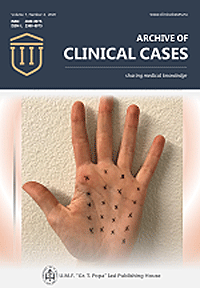Acute inflammation
Acute inflammation (exudative inflammation) is the immediate and early defensive response in the host, to all forms of injury. The main characteristic feature is the inflammatory infiltrate (exudate), which consists in: plasma liquid, plasma proteins, leukocytes, red blood cells and, sometimes, infective germs.
Depending on the etiology, localization and composition, exudative inflammation can be :
- serous (first stage of lobar pneumonia, vesicles in herpetic infections or burns)
- fibrinous (second stage of lobar pneumonia, fibrinous pericarditis, peritonitis or pleuresia, pseudomembranous colitis)
- sero-fibrinous (the mixed form of previous two)
- chataral (inflammation of mucus secreting mucosa from digestive or respiratory tract)
- purulent or suppurative (localized - abscess and folliculitis or diffuse - phlegmon or cellulitis, erysipelas, purulent meningitis, phlegmonous cholecistitis/appendicitis)
Last updated : 01/30/2009

